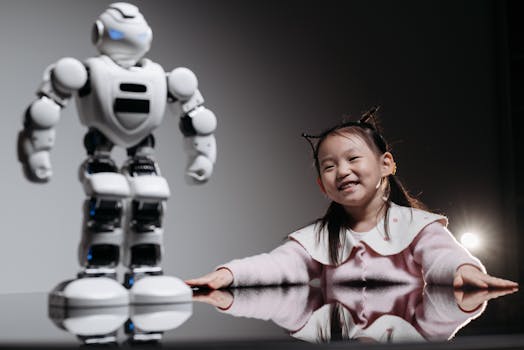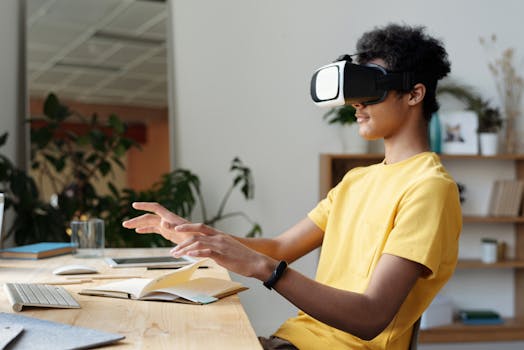
The Future of Education: What 2025 Holds
The future of education is rapidly changing, with technology and innovation playing a major role. In 2025, we can expect to see significant advancements in online learning, artificial intelligence, and personalized education. The focus keyword, Future of Education, is an important aspect of this transformation, as it encompasses the various ways in which technology is being used to improve the learning experience.
Section 1: Introduction to the Future of Education

The traditional classroom model is no longer the only way to learn. With the rise of online learning platforms and digital resources, students can now access a wide range of educational materials from anywhere in the world. This shift towards online learning has opened up new opportunities for students, particularly those in remote or underserved areas. The Future of Education is all about harnessing the power of technology to create a more inclusive and effective learning environment.
Section 2: Trends in Education Technology

One of the key trends in education technology is the use of artificial intelligence (AI) to personalize the learning experience. AI-powered adaptive learning systems can adjust to an individual student’s needs and abilities, providing real-time feedback and assessment. This approach has shown significant promise in improving student outcomes and increasing engagement. Another trend is the use of virtual and augmented reality (VR/AR) to create immersive and interactive learning experiences. These technologies have the potential to revolutionize the way we learn, making complex concepts more accessible and fun to understand.
Section 3: The Impact of Online Learning on Traditional Education

The rise of online learning has significant implications for traditional education. As more students turn to online platforms for their educational needs, traditional institutions must adapt to stay relevant. This may involve incorporating online learning into their existing models or developing new, innovative approaches to education. The Future of Education is likely to be a blend of online and offline learning, with each approach complementing the other to provide a comprehensive and effective learning experience.
Section 4: Challenges and Opportunities in the Future of Education

While the future of education holds much promise, there are also significant challenges to be addressed. One of the major concerns is the digital divide, where some students may not have access to the technology and resources needed to participate in online learning. Another challenge is ensuring that online learning platforms are accessible and inclusive for all students, regardless of their abilities or disabilities. Despite these challenges, the Future of Education offers many opportunities for innovation and growth, particularly in the areas of education technology and personalized learning.
Section 5: Conclusion

In conclusion, the Future of Education is an exciting and rapidly evolving field, with technology and innovation playing a major role. As we look to 2025 and beyond, we can expect to see significant advancements in online learning, artificial intelligence, and personalized education. The key to success will be harnessing the power of technology to create a more inclusive, effective, and engaging learning experience for all students. The Future of Education is bright, and it’s an exciting time to be a part of it.





